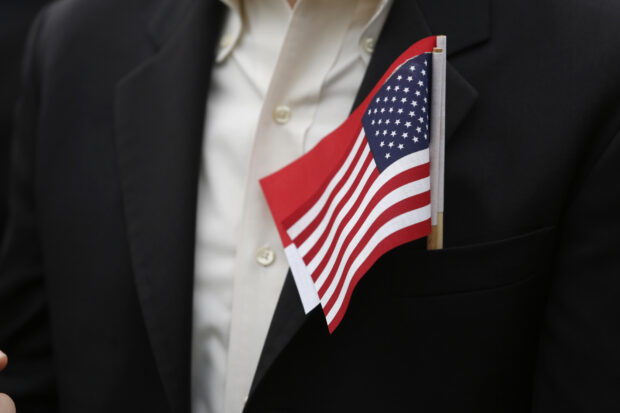US says it takes seriously reports of misbehavior by its envoy to Singapore

A guest wears U.S. and Singapore flags prior to the arrival of Singapore Prime Minister Lee Hsien Loong at the White House in Washington, U.S., August 2, 2016. REUTERS/Jonathan Ernst/ File Photo
WASHINGTON — The White House on Friday said the U.S. government was taking seriously an internal watchdog report that the U.S. ambassador to Singapore threatened his staff and failed to submit about $48,000 in travel expenses on time or with proper documentation.
Ambassador Jonathan Kaplan, a political appointee, had poor relations with some Singaporean ministries and was often unprepared on issues, the State Department’s Office of Inspector General (OIG) said in a report.
“OIG found the ambassador did not model integrity, plan strategically, collaborate, or communicate,” it said, urging the State Department to assess his leadership and management and, if appropriate, “take corrective action.”
“Numerous staff described a fear, and even direct threats, of reprisal from the Ambassador,” it said. “They described his mannerisms with personnel as belittling and intimidating.”
READ: US VP Kamala Harris visits Singapore to deepen ties, counter China’s influence
The report noted the ambassador’s view that “although there had been a difficult transition when he assumed his position, morale had improved under his leadership, and he was confident that he had gained the trust” of his staff.
“The president always wants his representatives … to manage people with dignity and respect,” White House National Security Council spokesman John Kirby told reporters. “He’s comfortable that the State Department is taking this seriously.”
The report faulted Kaplan, an entrepreneur, for failing to follow procedures in hiring consultants who submitted bills of $5,650 for “a furniture research project” and of $4,250 to redesign the embassy’s cafeteria.
The report found Kaplan did not follow many of the State Department’s travel policies, failing to use a travel agency under contract with the U.S. government and to comply with a U.S. law requiring the use of U.S. carriers.
“OIG found approximately $48,000 worth of outstanding travel obligations extending back to December 2021 that either were not submitted for reimbursement or lacked sufficient supporting documentation to pay the travel claim,” it said.